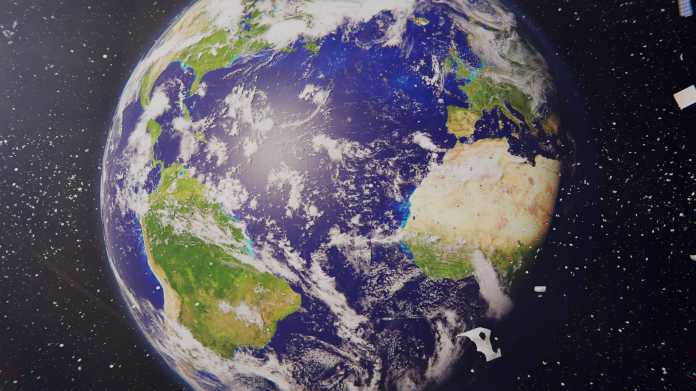China advised the United Nations earlier this month that its own space station had to perform two evasive maneuvers this year to rule out a possible collision with a SpaceX Starlink satellite. The letter to the UN Committee on the Peaceful Uses of Outer Space has only now received widespread attention because a massive wave of criticism of SpaceX boss Elon Musk had built up in China’s social networks.
In the document, China invokes the space treaty, which obliges participants to inform each other and the United Nations about anything that could pose a danger to astronauts in space. The operations surrounding the satellites for the Starlink Internet project were such a danger.
Two near-collisions in a few months
According to China’s UN agency, the first near-collision occurred on July 1 with the Starlink-1095 satellite. Between mid-May and the end of June, it slowly moved down from its orbit at an altitude of 555 kilometers and was ultimately only around 382 kilometers away from the earth’s surface. That is a few kilometers below the orbit of China’s space station. On July 1, she carried out an evasive maneuver to avoid a collision. How close the two objects came is not stated in the letter. Even comparatively large distances can, however, be assessed as dangerous if paths are not known precisely enough. The next evasive maneuver was therefore necessary on October 21. To make matters worse, Starlink-2305 moved continuously without the target of this maneuver being known.
The United Nations should remind all participating states of the space treaty of their obligations, China now demands, mainly of their responsibility for all space activities from their own country. The extremely diplomatic criticism of SpaceX and the growing risk of collisions in space is not the first of its kind. In August, for example, experts from the University of Southampton warned that the rapidly increasing number of Starlink satellites in orbit was already affecting around 50 percent of the “Close encounter” are involved. Competitor OneWeb denounced the antiquated approach to avoiding collisions and how SpaceX handled it in the spring. Europe’s space agency ESA had to evade a Starlink satellite as early as 2019 and had clearly criticized the passivity of SpaceX.

What motives China has for the criticism now officially presented can only be speculated about. In any case, it is noticeable that the letter of December 6 initially did not provoke any public reaction. That changed when Chinese complaints about Elon Musk began to pile up on social networks. It now seems reasonable to assume that the Chinese government is at least acceptable to these reactions. The regime was heavily criticized in the spring for the fact that a large rocket stage had crashed in an uncontrolled manner after launch. A danger to people could not be ruled out until the end. The rocket had brought the core module for the Chinese space station into space. At the time, China had forbidden any criticism, although it has long been international practice to take precautions to ensure a controlled crash over uninhabited areas. A complaint to the United Nations But it didn’t exist back then.
(mho)
